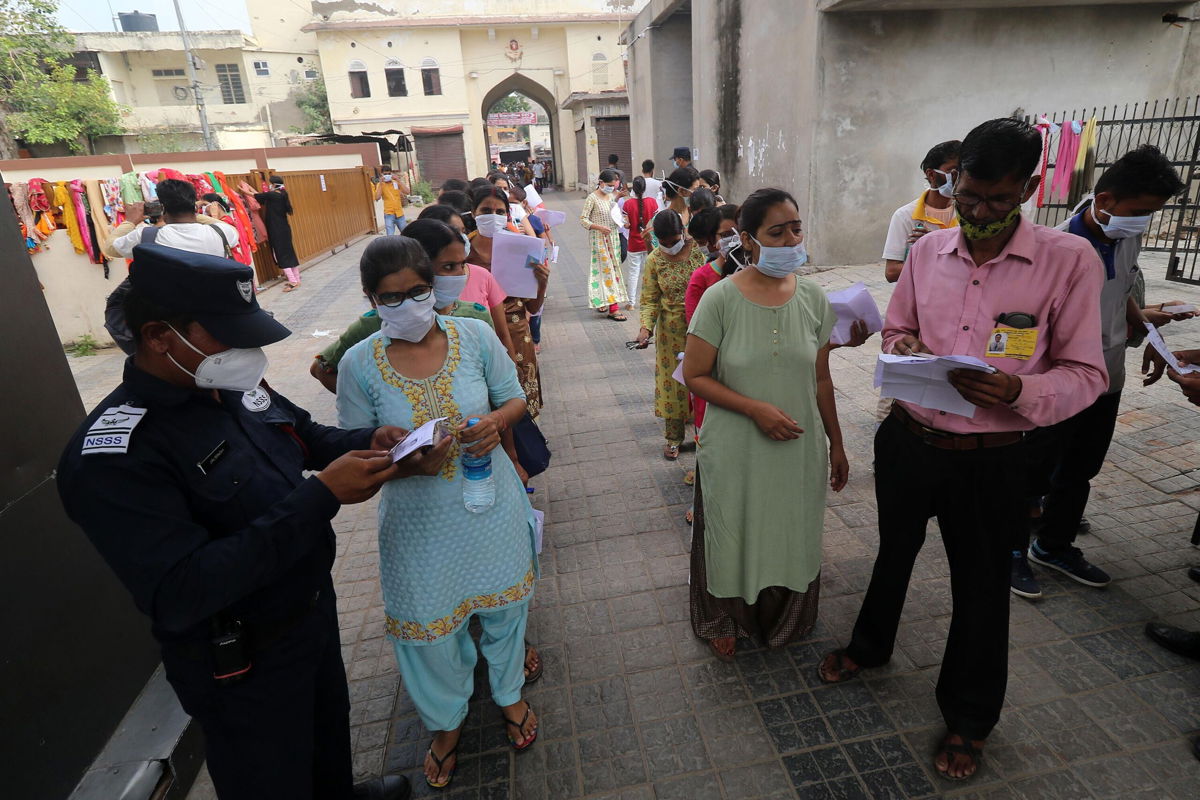Internet goes dark for millions in Indian state’s bid to stop exam cheats

Security personnel frisk a test candidate about to take the Rajasthan Eligibility Exam for Teachers (REET) at an examination center in Jaipur
By Jessie Yeung, Swati Gupta and Meenketan Jha, CNN Business
More than 25 million people across the Indian state of Rajasthan faced government-mandated internet shutdowns and restrictions on Sunday, in an effort to prevent cheating in a mass exam.
Hundreds of thousands of candidates sat the Rajasthan Teacher Eligibility Test (REET), an exam that paves the way to employment as a primary or secondary school teacher at government-run schools.
It’s a coveted position that comes with generous benefits — and the exam hasn’t been held in Rajasthan since 2018, which could be one reason there were so many candidates on Sunday.
Thousands of test centers were set up across the state, with people traveling from their hometowns on free buses arranged by the government. But, wary of potential cheating on the written exam — which has been rampant in the past — authorities ordered districts to issue internet restrictions to prevent any leaks of information.
At least 10 districts shut down their mobile internet, though several kept broadband internet going to minimize disruption to businesses and daily life.
In Jaipur district, the state’s most populous with more than 6.6 million residents, the internet was shut down from 8 a.m. to 5 p.m., according to Dinesh Kumar Yadav, the Jaipur divisional commissioner.
“There were so many candidates … we just wanted to make sure [there wasn’t cheating],” Yadav said. “People tried to cheat but we caught a lot of them. But because of the internet shutdown, the [test] paper was not leaked out.”
He added that candidates sometimes use “different types” of instruments to try to cheat, and that other students “would get angry if they did not get a fair chance.”
Several other major districts, including Alwar, Nagaur, Sikar and Ajmer, also imposed temporary internet shutdowns — adding up to a total of more than 25.2 million people affected, according to the most recent population estimates from the 2011 census. According to the same survey, Rajasthan is home to more than 68 million people.
Other anti-cheating measures included CCTV cameras at all testing centers, according to a document tweeted by Rajasthan Chief Minister Ashok Gehlot. Candidates were not allowed to bring in their own face masks from the outside; after arriving, they had to discard the masks they brought, then use masks provided at the testing center.
The whole process of the exam — from the printing of the test papers, to their transportation then distribution to students at the testing center, was closely surveilled and videotaped, said the document. Any exam workers or proctors involved in leaking the test papers would be immediately fired, and face potential legal action.
It’s not the first time Rajasthan has shut down the internet to curb cheating; the same thing happened in 2018 during a police constable exam, with the shutdown bringing banking and logistics industries to a standstill, according to CNN affiliate CNN-News18.
The measures might sound extreme — but a number of widespread cheating scandals in the past few years have thrust the issue to the fore, with a few garnering international attention. In one well-known instance in 2015, family members in the state of Bihar climbed up the outside of school buildings to pass cheat sheets to their children inside, who were taking year-end grade 10 examinations.
The desperation reflects the heavy emphasis on education in the country, where for many, proper schooling could be the key out of poverty.
In response, schools and authorities have experimented with different anti-cheating strategies, though some have backfired by prompting public outrage — as was the case in 2019 when one school in Karnataka state asked students to wear cardboard boxes on their heads during exams.
The-CNN-Wire
™ & © 2021 Cable News Network, Inc., a WarnerMedia Company. All rights reserved.